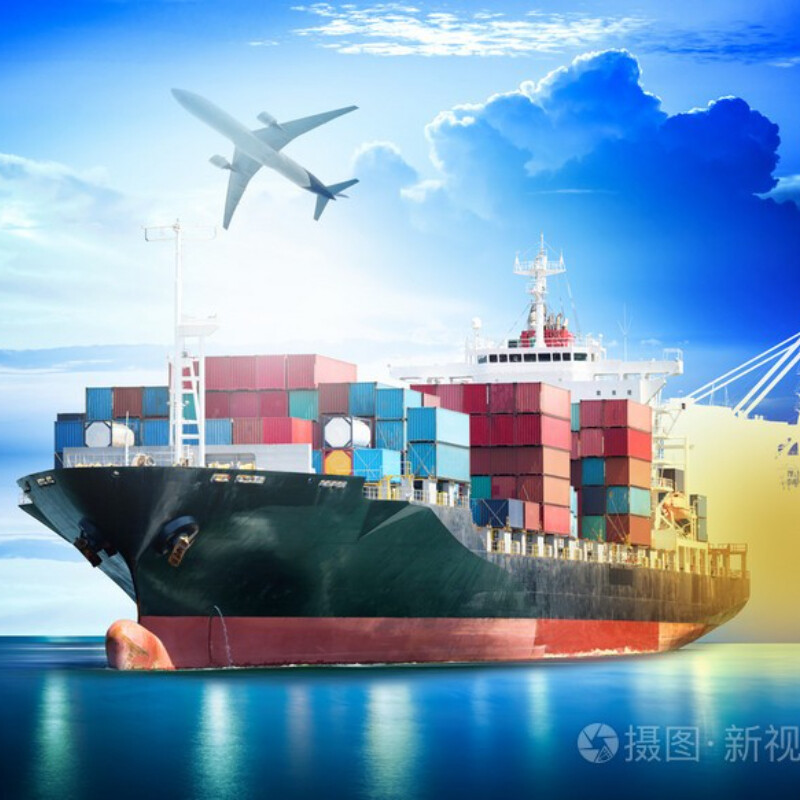Email format error
Email cannot be empty
Email already exists
6-20 characters(letters plus numbers only)
The password is inconsistent
Email format error
Email cannot be empty
Email does not exist
6-20 characters(letters plus numbers only)
The password is inconsistent

News
Here, you can describe a piece of text you want to express

Air Freight Shipping from China to Malaysia: A Comprehensive Guide
The trade relationship between China and Malaysia has been growing steadily in today's globalized economy. As a result, the demand for efficient and reliable transportation services, such as air freight shipping, has increased significantly. This guide aims to provide a comprehensive overview of air freight shipping from China to Malaysia, highlighting its benefits and key considerations.
The Advantages of Choosing Air Freight Shipping
Air freight shipping offers several advantages over other modes of transportation. Firstly, it provides faster transit times, allowing businesses to meet tight deadlines and reduce lead times. Secondly, air freight shipping offers greater flexibility in terms of cargo size and weight, making it suitable for both small and large shipments. Additionally, air freight shipping provides enhanced security measures and real-time tracking capabilities, ensuring the safety and visibility of goods throughout the transportation process.
Section 1: Overview of Air Freight Shipping from China to Malaysia
1.1 The Growing Trade Relationship between China and Malaysia
China and Malaysia have established a strong trade partnership, with bilateral trade reaching new heights in recent years. The two countries engage in the exchange of various goods, including electronics, machinery, textiles, and automotive parts. This robust trade relationship has fueled the demand for efficient logistics solutions, particularly air freight shipping.
1.2 The Role of Air Freight Shipping in Enhancing Trade
Air freight shipping plays a crucial role in facilitating trade between China and Malaysia. It enables businesses to transport goods quickly and efficiently, ensuring a smooth supply chain flow. With the ability to transport perishable and time-sensitive goods, air freight shipping has become an indispensable mode of transportation for industries such as electronics, pharmaceuticals, and fashion.
1.3 Key Airports and Airlines for China-Malaysia Air Freight Shipping
Several airports in China and Malaysia serve as major hubs for air freight shipping. In China, airports such as Shanghai Pudong International Airport, Guangzhou Baiyun International Airport, and Beijing Capital International Airport are key gateways for cargo destined for Malaysia. Similarly, Kuala Lumpur International Airport and Penang International Airport are major airports in Malaysia that handle air freight shipments from China. Airlines such as China Southern Airlines, Air China, Malaysia Airlines, and DHL Aviation are among the prominent carriers operating on this route.
Section 2: Choosing the Right Air Freight Service Provider
2.1 Factors to Consider When Selecting an Air Freight Service Provider
When choosing an air freight service provider, several factors should be taken into consideration. These include the provider’s reputation, experience in handling China-Malaysia shipments, network coverage, reliability, and customer service. It is essential to partner with a service provider that understands the specific requirements and regulations of both countries.
2.2 Comparing Different Air Freight Service Providers
To make an informed decision, it is advisable to compare different air freight service providers. This can be done by requesting quotes, evaluating their service offerings, and reviewing customer feedback. It is important to assess factors such as transit times, handling capabilities, customs expertise, and value-added services offered by each provider.
2.3 Tips for Negotiating Rates and Services
Negotiating rates and services with air freight service providers can help businesses optimize their shipping costs. It is recommended to leverage the volume of shipments, establish long-term partnerships, and explore consolidation options to negotiate favorable rates. Additionally, discussing value-added services such as customs clearance assistance and cargo insurance can further enhance the overall shipping experience.
Section 3: Understanding the Air Freight Shipping Process
3.1 Documentation and Customs Clearance Procedures
Proper documentation is crucial for smooth air freight shipping. Businesses must ensure that all necessary paperwork, including commercial invoices, packing lists, and certificates of origin, are accurately prepared and submitted. Familiarizing oneself with the customs clearance procedures of both China and Malaysia is essential to avoid delays and penalties.
3.2 Packaging and Labeling Requirements
Proper packaging and labeling are vital to protect goods during air freight shipping. Packaging should be sturdy and suitable for air transportation, considering factors such as weight, fragility, and temperature sensitivity. Additionally, labeling requirements, including proper labeling of hazardous materials, should be adhered to in compliance with international regulations.
3.3 Cargo Consolidation and Deconsolidation
Consolidation services allow businesses to combine multiple shipments into a single air freight shipment, reducing costs and optimizing space utilization. Deconsolidation services, on the other hand, involve the separation of consolidated shipments at the destination airport. Understanding the benefits and processes of cargo consolidation and deconsolidation can help businesses make informed decisions.
3.4 Tracking and Monitoring Shipments
Real-time tracking and monitoring of air freight shipments provide businesses with visibility and control over their goods. Many air freight service providers offer online tracking systems that allow customers to monitor the status and location of their shipments. This feature enables businesses to proactively manage any potential delays or disruptions.
Section 4: Key Considerations for Air Freight Shipping from China to Malaysia
4.1 Import and Export Regulations
Understanding the import and export regulations of both China and Malaysia is crucial for successful air freight shipping. Businesses must comply with customs requirements, including documentation, duties, taxes, and restricted/prohibited items. Engaging the services of a customs broker or freight forwarder can help navigate these regulations effectively.
4.2 Restricted and Prohibited Items
Certain items are restricted or prohibited from being transported via air freight. These include hazardous materials, perishable goods, live animals, and certain controlled substances. It is essential to familiarize oneself with the specific restrictions and prohibitions of both China and Malaysia to avoid legal issues and ensure compliance.
4.3 Insurance Coverage for Air Freight Shipments
While air freight shipping is generally considered safe, unforeseen events such as accidents, theft, or natural disasters can occur. It is advisable to consider cargo insurance to protect against potential losses or damages during transit. Insurance coverage should be carefully evaluated, taking into account the value and nature of the goods being shipped.
4.4 Handling Perishable and Temperature-Sensitive Goods
Air freight shipping is an ideal choice for transporting perishable and temperature-sensitive goods, such as fresh produce, pharmaceuticals, and flowers. However, proper handling and temperature control are crucial to maintain the quality and integrity of these goods. It is important to work with air freight service providers that have expertise in handling such shipments and offer specialized facilities and equipment.
Section 5: Cost Optimization Strategies for Air Freight Shipping from China to Malaysia
5.1 Consolidation and Groupage Services
Consolidation and groupage services allow businesses to share space and costs with other shippers. By combining multiple smaller shipments into a single air freight shipment, businesses can benefit from reduced rates and increased efficiency. This strategy is particularly useful for small and medium-sized enterprises with lower shipping volumes.
5.2 Utilizing Freight Forwarders for Cost Savings
Freight forwarders act as intermediaries between businesses and air freight service providers. They leverage their industry knowledge and relationships to negotiate competitive rates and provide value-added services. Engaging the services of a freight forwarder can help businesses optimize their shipping costs and streamline the logistics process.
5.3 Negotiating Volume Discounts with Airlines
Businesses that have a significant volume of air freight shipments can negotiate volume discounts with airlines. By committing to a certain volume of shipments over a specified period, businesses can secure preferential rates and additional benefits. This approach requires careful planning and forecasting to ensure the volume commitment can be met consistently.
5.4 Warehouse and Distribution Solutions
Efficient warehousing and distribution solutions can contribute to cost optimization in air freight shipping. By strategically locating warehouses near airports and utilizing advanced inventory management systems, businesses can reduce storage costs, improve order fulfillment, and minimize transit times. Working with logistics partners that offer integrated warehousing and distribution services can streamline the supply chain and enhance overall efficiency.
Section 6: Challenges and Solutions in Air Freight Shipping from China to Malaysia
6.1 Delays and Disruptions in Air Freight Shipping
Despite the speed and efficiency of air freight shipping, delays and disruptions can occur due to various factors such as weather conditions, customs clearance issues, or operational challenges. Businesses should have contingency plans in place to mitigate the impact of such disruptions, including alternative transportation options and proactive communication with customers and suppliers.
6.2 Addressing Customs Issues and Documentation Errors
Customs issues and documentation errors can lead to delays and additional costs in air freight shipping. To avoid such issues, businesses should ensure accurate and complete documentation, including proper classification of goods, adherence to customs regulations, and timely submission of required paperwork. Engaging the services of customs brokers or freight forwarders with expertise in China-Malaysia trade can help navigate these complexities.
6.3 Managing Risks and Ensuring Security
Air freight shipping involves inherent risks, including theft, damage, or loss of goods. Businesses should implement robust security measures, such as tamper-evident packaging, cargo tracking systems, and insurance coverage, to mitigate these risks. Collaborating with reputable air freight service providers and adhering to industry best practices can enhance security and minimize potential losses.
Final Thoughts and Recommendations for Successful Air Freight Shipping
To ensure successful air freight shipping from China to Malaysia, businesses should carefully select reliable air freight service providers, understand the shipping process, comply with import/export regulations, optimize costs, and address potential challenges. By following these recommendations and leveraging the advantages of air freight shipping, businesses can streamline their supply chain and achieve efficient and timely delivery of goods.

